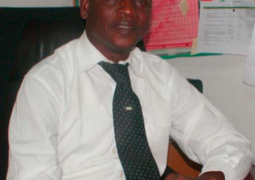The Gambia last Wednesday July 29th 2009 launched the Livestock and Horticulture Development Project, at a ceremony held at the Seaview Hotel in Kololi.
The project is made up of three main components production, processing and marketing of livestock and horticultural products on sustainable basis, capacity-building through adoption of good agricultural practices entrepreneurship and project management.
In his opening remarks, Mr. Bakary Trawally, the Permanent Secretary at the Ministry of Agriculture said the project, among others, seeks beneficiaries particularly women and children.
According to him, the government of the Gambia for the past six to seven years brought a similar project for women and youths in the Western and North Bank Regions for developing and promoting livestock and horticultural activities in the country.
He expressed government's untiring resolve to work towards the achievement of the Vision 2020 objectives, Millennium Development Goals and Poverty Reduction Strategy Paper (PRSP).
Mr. Trawally further stated that International Fund for Agricultural Development (IFAD) is interested in co-sponsoring the same project with a total grant amount of US$8m, thus bringing the cumulative project budget to over US$14m.
He added that the project will ensure efficient and effective coordination and harmonisation between components, as well as other projects and all other implementing partners through the Regional Director (RD) and technical services.
He commended the international development partners, especially ADB for providing all the technical support for the successful implementation of the project and for their partnership in development.
Mr. Harouna Dosso, ADB representative said that food crisis has threatened to throw back millions of people into poverty. The food crisis, he went on, also provides an opportunity to bring agriculture back into the development agenda of the bank.
He said the bank aims to promote the transformation of the agriculture sector from subsistence to commercial farming, strengthen the policy and regulatory frameworks and human capacity of its regional member countries in order to take advantage of the huge potential of the sector for economic growth, development and poverty alleviation.
He revealed that the bank is the lead development partner in the agricultural sector in the Gambia accounting for 26% of its total financing and will continue to play that leading role.
"The bank group recognises the importance of infrastructure for improving agricultural production and productivity and has made it a strategic priority", he stated.
He also expressed bank's confidence that the successful implementation of the Livestock and Horticulture Development Project will lead to increased household income, food security and well-being of the Gambian women farmers.
The project is made up of three main components production, processing and marketing of livestock and horticultural products on sustainable basis, capacity-building through adoption of good agricultural practices entrepreneurship and project management.
In his opening remarks, Mr. Bakary Trawally, the Permanent Secretary at the Ministry of Agriculture said the project, among others, seeks beneficiaries particularly women and children.
According to him, the government of the Gambia for the past six to seven years brought a similar project for women and youths in the Western and North Bank Regions for developing and promoting livestock and horticultural activities in the country.
He expressed government's untiring resolve to work towards the achievement of the Vision 2020 objectives, Millennium Development Goals and Poverty Reduction Strategy Paper (PRSP).
Mr. Trawally further stated that International Fund for Agricultural Development (IFAD) is interested in co-sponsoring the same project with a total grant amount of US$8m, thus bringing the cumulative project budget to over US$14m.
He added that the project will ensure efficient and effective coordination and harmonisation between components, as well as other projects and all other implementing partners through the Regional Director (RD) and technical services.
He commended the international development partners, especially ADB for providing all the technical support for the successful implementation of the project and for their partnership in development.
Mr. Harouna Dosso, ADB representative said that food crisis has threatened to throw back millions of people into poverty. The food crisis, he went on, also provides an opportunity to bring agriculture back into the development agenda of the bank.
He said the bank aims to promote the transformation of the agriculture sector from subsistence to commercial farming, strengthen the policy and regulatory frameworks and human capacity of its regional member countries in order to take advantage of the huge potential of the sector for economic growth, development and poverty alleviation.
He revealed that the bank is the lead development partner in the agricultural sector in the Gambia accounting for 26% of its total financing and will continue to play that leading role.
"The bank group recognises the importance of infrastructure for improving agricultural production and productivity and has made it a strategic priority", he stated.
He also expressed bank's confidence that the successful implementation of the Livestock and Horticulture Development Project will lead to increased household income, food security and well-being of the Gambian women farmers.


